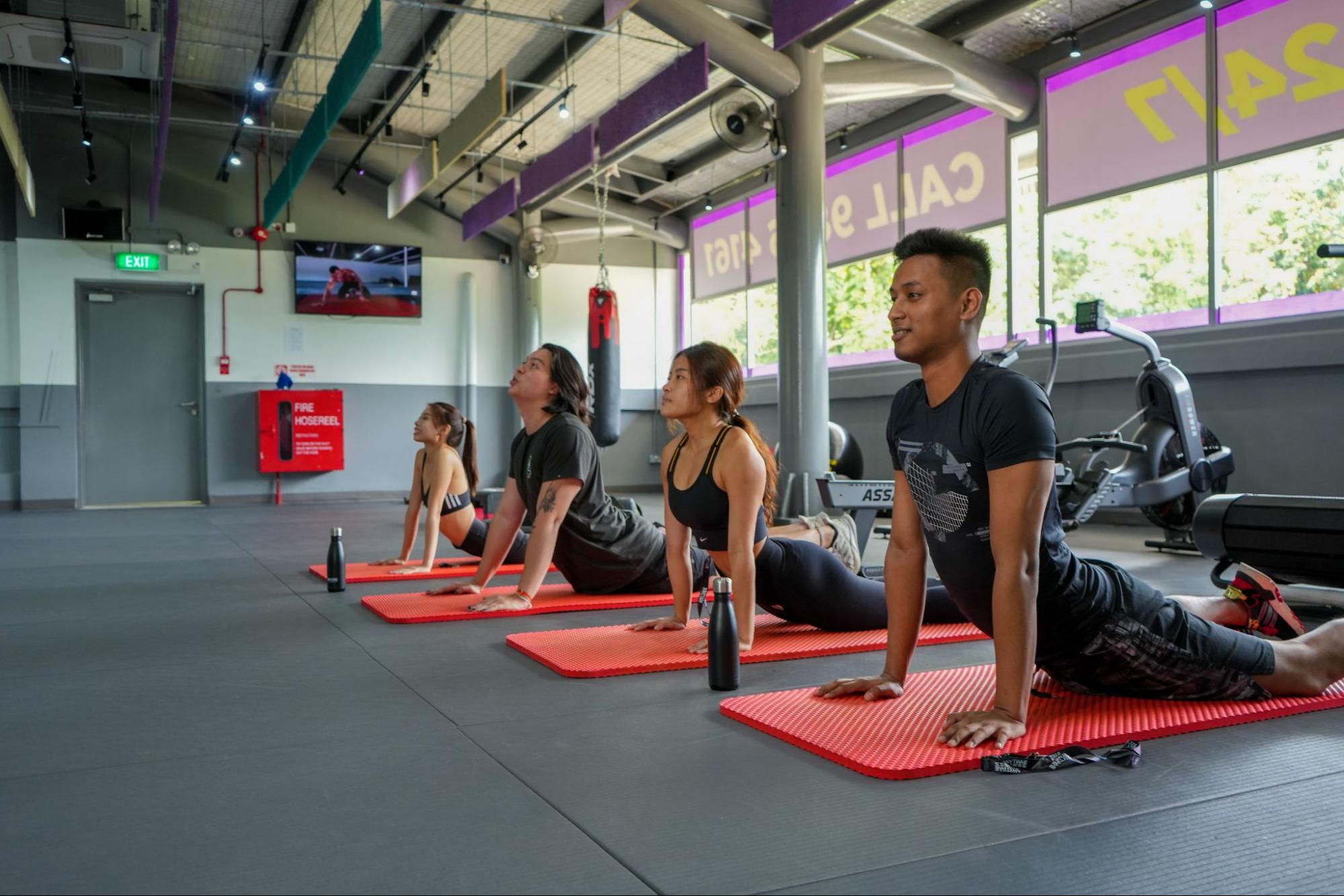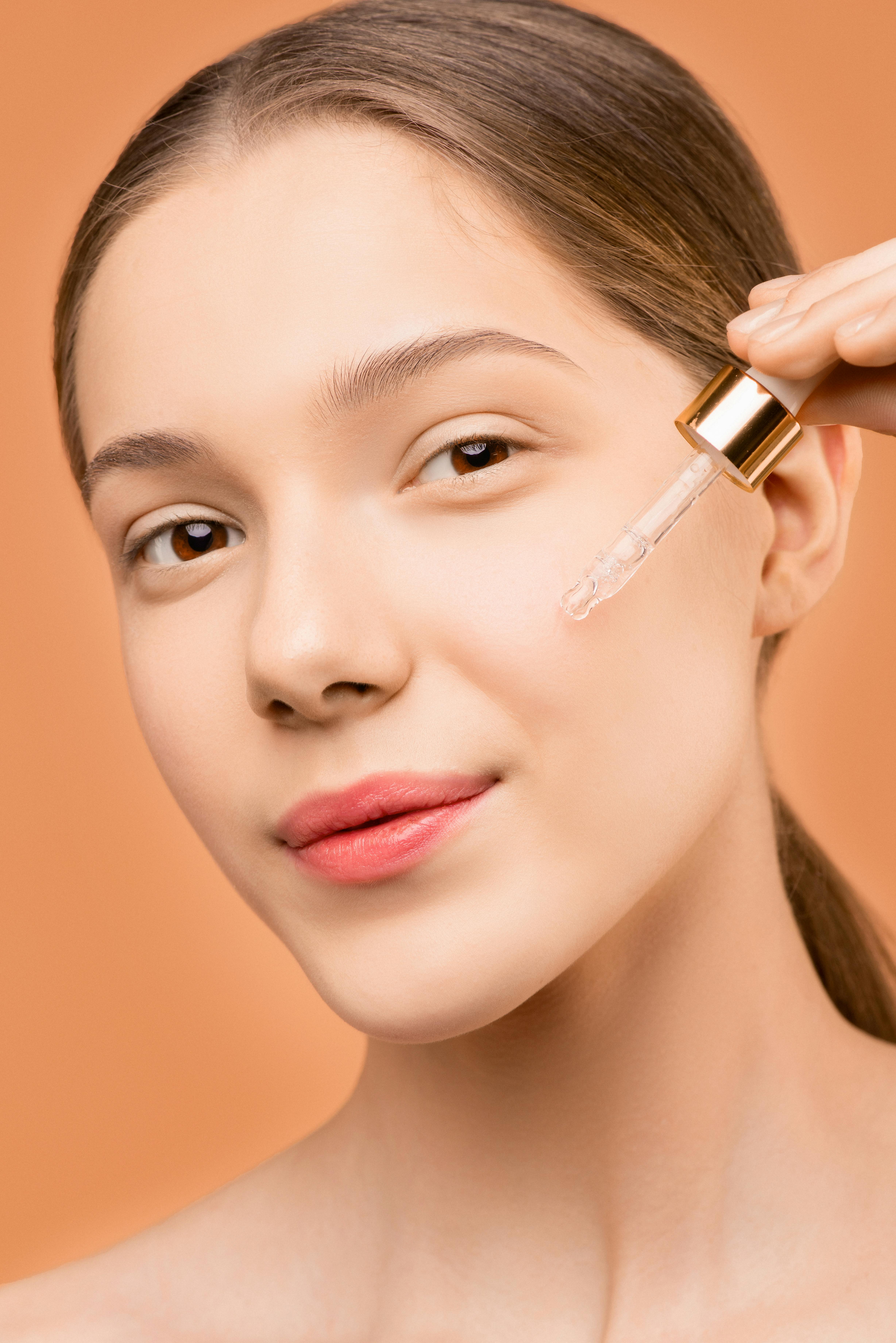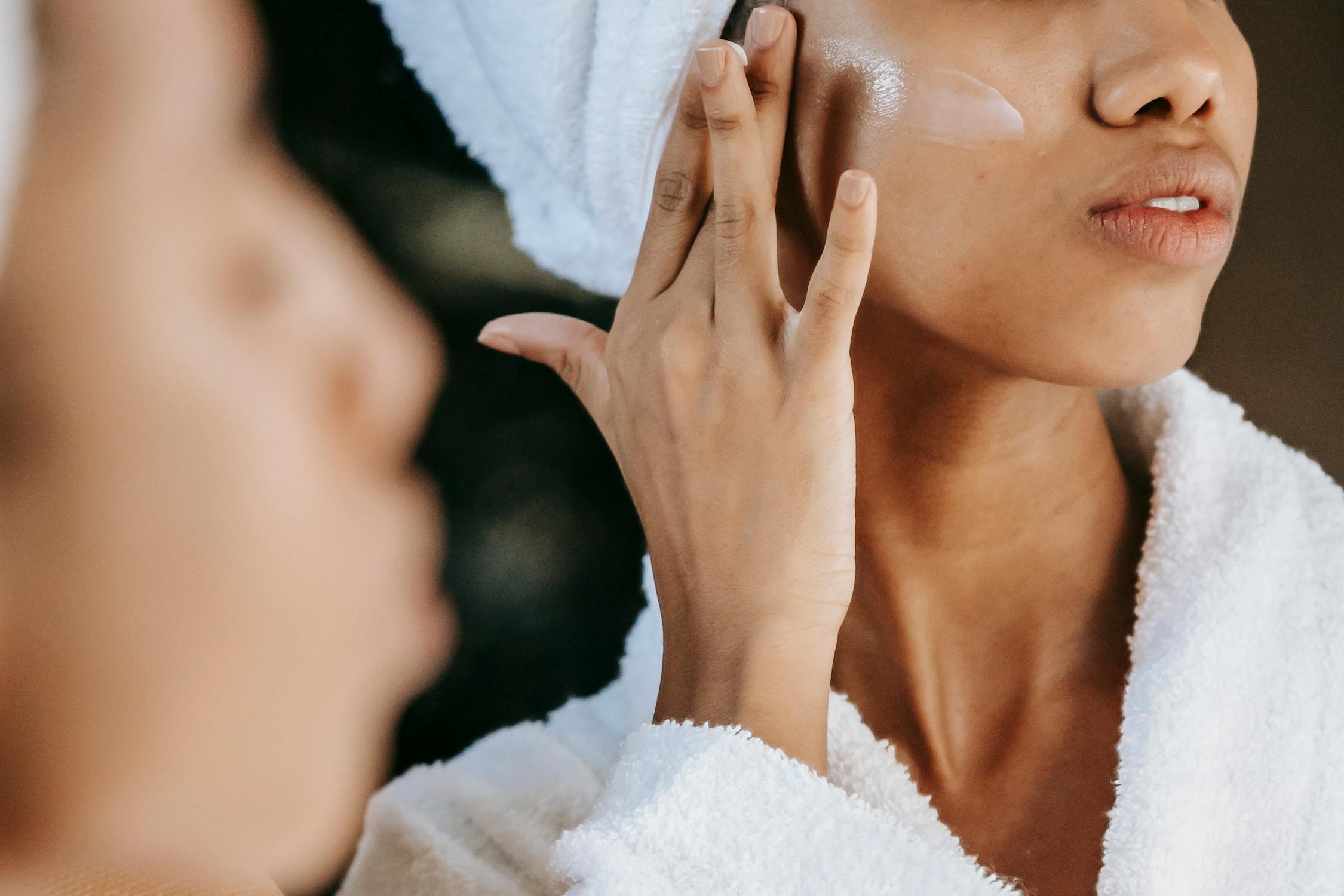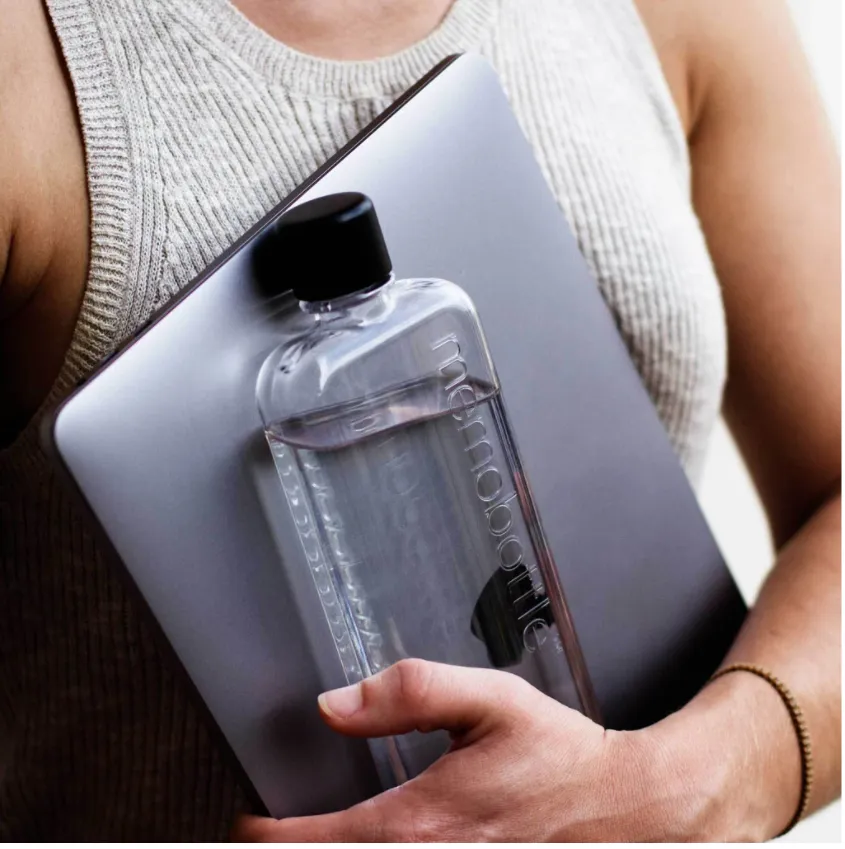
Wearing face masks so often, our skin may get irritated from the heat and friction caused under our masks. Have you ever encountered redness, skin peeling, itching, or inflamed skin? Do you feel a burning or stinging sensation on your skin even when applying skincare without active ingredients products on your face? These are signs of a weakened skin barrier.
Our skin barrier helps keep water in and irritants out. It is also the key to that healthy dewy, glass-like skin. To keep our skin barrier strong to prevent skin sensitivity and dullness, here are 12 tips to prevent transcutaneous evaporative water loss (TEWL) for healthy skin.
1. Avoid harsh exfoliators
Harsh physical exfoliants like beads in scrubs, or waxing your face can damage your skin barrier, when they rub too hard against your skin or strip off your skin surface. Drop the harsh products and opt for gentle physical exfoliators like the Glov On-the-Go or chemical exfoliants like lactic acid (AHAs) or salicylic acid (BHAs). With soft bamboo fibres, Glov On-The-Go is a gentle exfoliator for cleansing your skin off dirt and makeup. Suitable for use daily, use it as your go-to everyday cleansing companion!
Source: Glov
2. Keep up with a healthy lifestyle
External factors like the amount of exercise output is important too! Ensure that you get at least 8 hours of sleep a night. Do avoid smoking and take note of the amount of alcohol and caffeine you consume for an improved overall health. Exercising can help reduce your stress levels as well. It will show on your skin!

Source: Anytime Fitness
3. Cut down on active ingredients
During periods where you experience increased skin sensitivity, consider ditching your products that contain active ingredients for a week or two and focus on building your skin barrier. This includes avoiding skincare products that include Vitamin C, retinol, or AHA/BHA acids.
Try including skin-replenishing ingredients like ceramides, glycerin, niacinamide, hyaluronic acid, cholesterol, and calming ingredients like centella asiatica.
A calming glycerin-rich serum is the Acwell Licorice pH Balancing Essence Face Mist with licorice root water as its main ingredient which is anti-inflammatory to soothe sensitive and troubled skin. It is also rich in antioxidants to combat collagen-damaging free radicals.

Source: Acwell / Nudie Glow
After your sensitised skin has calmed down, slowly introduce actives back into your skincare routine.
4. Slowly introduce actives into your skincare routine
Avoid building an extensive skincare routine and keep your routine to a minimum, addressing key skin concerns you may have. Introduce actives like retinol and acids slowly into your routine.
Start from applying the product once a week, to increasing the frequency of usage to 2-3 times a week. You can also identify how the product is working for you this way, instead of using 3 new products at once. When you use too many new products at once, you may not be sure which product may be causing your skin to purge or break out!

5. Use ceramides
Ceramides are key to creating a protective barrier on the top layer of your skin as it helps to hold skin cells together, acting like glue. The three essential ceramides are ceramides 1, 3 and 6-II. Look for products with ceramides as its main ingredient. Use them in your nighttime routine to help repair your skin overnight.

6. Take note of your diet
Other than what you are putting on your face, you should also take note of what you are putting into your body. Ceramides are present in the foods we eat, such as foods rich in omega-3 and omega-6. This includes fatty fish, dairy, eggs, brown rice, spinach, sweet potatoes, and soybeans. The next time you want to buy more skincare products, perhaps check out the supermarket too!

Source: Le Xin Catering Group / Shopee Blog
7. Use lukewarm water when cleansing face
Using water that is too hot to cleanse your face can strip your skin off its natural oils. Try using lukewarm water with your gentle cleanser or moisten your Glov-On-The-Go to gently cleanse your face.
8. Avoid fragrances, alcohols, and silicones in your products
You may be potentially irritating your skin with products you use. The next time you reach out for your favourite moisturiser, take a look at the ingredient list.
Alcohols in skincare act as a preservative and make the products go on more smoothly and lightly on your skin. However, it may cause irritation and dryness on your already weakened skin barrier.
Silicones may give your skin a smooth look and texture, but it may also dehydrate your skin and clog your pores.
Artificial fragrances smell great and make the skincare experience feel nice, but it may also cause redness and irritation on your skin. Natural botanicals and scents on the other hand, are not as irritating on your skin.

9. Keep pH levels in mind
Sodium lauryl sulfate (SLS) is commonly found in soaps as a foaming agent. While it gives you the familiar foamy cleansing experience, it strips the skin of its natural oils and leaves skin dry. It is basic in nature, which disrupts the pH balance of your skin. Acwell pH Balancing Bubble Free Cleansing Gel Cleanser removes sebum while retaining and improving skin moisture. It includes soothing and brightening ingredients like licorice water and elderflower extract.
10. Wear sunscreen
Sunscreen is the number one not-to-skip skincare step. Do not forget to wear your daily SPF! After all the care taken to apply all the goodies on your skin, the most important step is to protect your skin from sun damage. Other than protecting your skin from the sun, it also protects your skin from harsh environments.

Use sunscreen even if you are working from home - we are exposed to sun rays through our windows. Tone up your skin tone while protecting it from sun damage with Giverny Milchak Tonedation Tone Up Sunscreen SPF50+ PA+++. Now you’re Zoom-call ready while also sun protected!

Source: Giverny
11. Stay hydrated
Remember to stay hydrated while you are on your journey to fix your skin barrier. If you want your skin to look hydrated, you have to be hydrated on the inside too. The fatty acids, cholesterol, and ceramides are responsible for keeping your skin retain moisture, drink up to quench your skin!

Source: Memobottle / Lazada
12. Try using natural plant oils
Other than using products with ceramides and key moisturising ingredients, you may also consider using natural oils that have natural antibacterial, anti-inflammatory, and anti-oxidising factors. These include:
-
Jojoba oil
-
Almond oil
-
Rosehip oil
-
Argan oil
You may apply them in the form of creams or lotions, or use it alone as a light facial oil.
 Source: The Body Shop
Source: The Body Shop
13. Use a soft pillowcase
Friction and abrasion may be a reason why your skin is feeling more irritated. As you toss around on your bed, take note of your pillowcase’s material. Consider swapping out your rougher pillowcase for a silk, bamboo, or satin pillowcase. These moisture wicking fabrics are less abrasive and can help prevent frizz on your hair as well.
Source: Weavve
Follow these tips and incorporate them into your life for a less irritated, glowing skin. Good luck in your skin recovery journey, we are behind you!


